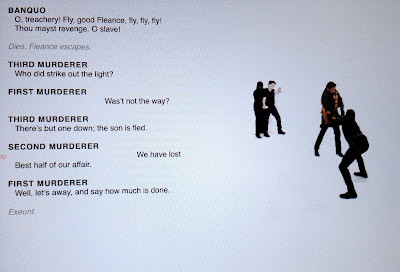This book is like a bibliophile’s acid trip or maybe
their worst nightmare, but in a completely enchanting way. A reader picks up a
book and just when it gets good the book ends. No matter what they do they
can’t find a complete copy of the text and so they can’t finish the book.
Instead they are led to begin reading one new book after another, each one
ending before they can finish the text. At one point Calvino is blaming one of
his characters for leaving a text unfinished and he says,
“Ermes Marana appears to you as a serpent who injects his
malice into the paradise of reading.”
That’s exactly what Calvino was doing and it was
hilarious that he was poking fun at himself through the text. At first I
wondered if the stories would wrap up in the second half of the book à la Cloud
Atlas, but soon I realized that wasn’t the point. The book is an exploration of
reading, not of one specific story.
The thing I truly loved was Calvino’s language. He has a
way of creating beautiful images, particularly whenever he was talking about
the act of reading.
“To fly is the opposite of traveling: you cross a gap in
space, you vanish into the void, you accept not bring in any place for a
duration that is itself a kind of void in time; then you reappear, in a place
and in a moment with no relation to the where and the when in which you
vanished. Meanwhile, what do you do? How do you occupy this absence of yourself
from the world and of the world from you? You read; you do not raise your eyes
from the book between one airport and the other.”
Even the lines of each title are beautiful. They read
like a poem, which we find out at the end is, of course, intentional.
In a network of lines that intersect
On the carpet of leaves illuminated by the moon
Around an empty grave
What story down there awaits its end?
The introduction and the ending chapter were my two
favorite parts. Calvino’s love of reading and his descriptions of it are just
breathtaking. While some of the other chapters ran together a bit for me, those
sections so perfectly captured the magic of being a reader.
I hope you all had fun with this one. It’s a completely
unique book and one that I’m glad I finally read. It’s certainly experimental,
but I think Calvino’s talent as a writer rises above any tricks he pulls.
What did you like about the book?
What didn’t work for you?


























